Journal writing is always highly self-obsessed, Henry Miller says to his lover and diarist Anais Nin. “you are a narcissist. That is the raison dêtre of the journal. Journal writing is a disease. ...I don’t know of any other woman writing so frankly.” Her answer was that narcissists are supposed to love themselves whereas she ..she doesn’t finish the sentence. The four letter L-word is more taboo for her than any other because of the lies she suspects around it. In fact her diary writing is above all obsessed with worrying away at the truth of the self in sexual relationships. Including a double-edged confessional compulsion which means making her lovers read her diary. And then writing in it about their reactions. (Now there’s a neat idea for a blog.)
From time to time I am glad to leave fiction for reading biography or diary writing. It’s a taste that I personally have acquired with age. I don’t remember reading biography with the same interest in my twenties. The accumulation of experience makes you keener not on gossip but in how people describe what happens to them. How they process life.
Next week for international womens’day on March 8th the local mediatheque theatre here in Antibes will host readings in French from the Diaries of Anais Nin. I’d read her late diaries written in her seventies when she was dying of cancer but not the most famous one which provided the material for the film based on her affair with Henry Miller which I read this week. “From her unexpurgated diary” nudges the blurb on the front cover. Ok. ‘Henry and June’ is on one level about a lot of sex, about 'talk melt(ed) into caresses, into deft, acute core-reaching fucking'. In ‘Henry and June’ Nin who is married to a banker and living in a green leafy villa in a nice suburb of Paris meets Miller at her editors where she is working on a book on D.H.Lawrence. They have ‘Lawrentian’ sex which takes place for Nin at least in a sensualist credo of freedom and truth-to-the-self which includes pushing him and herself to betrayal, noting very carefully her own ‘lies’ – the times when she says what she doesn’t feel, pretends pleasure, or enjoys herself with someone she doesn’t love passionately. Her navel-gazing is always lightened by her honesty. She doesn’t run away from her own despair when Miller compares her ‘light’ and ‘freshness’ to his being ‘satiated’ with ‘experience and pain.’ “the word ‘satiation’ terrified me. It seemed like the first drop of poison poured into me” The diary is above all Nin’s attempt to mirror what is happening to her. The writing is, not as Miller tells her, sealed off in its own narcissism. Even if she’s always noting her effect on others and their compliments, detailing her own clothes and perfume (‘mitsouko’ which Miller tells her is too light and flowery) with the soft-sell tone of a fashion columnist, her jewels sandals, big rings, painted fingernails. Miller tells her (and she notes), she’s ‘living some kind of a lie which is not a lie exactly but a fairy tale.’
She observes the rise and fall of each feeling and its contradiction; elation and depression, violent energy and depletion, lust and tiredness. Her own childlike beauty and her nose-job in a private clinic. Her exotic attraction to June, Henry’s wife, which goes nowhere. Repugnance, irritation, jealousy too because like a lot of free-thinking, freedom-intent women of the time Nin was intent on living her sexual relationships outside the confines of monogamy and childbirth. In fact she gave up all her energy to this ‘project’ - and the practice and the telling of it in her diaries – which is why Alice Walker remarks on the book jacket that this writing is ‘profoundly liberating’ and taboo-breaking.
In the end Nin’s diaries are more intriguing for the names she drops than for her quest for sexual truth and blossoming. Sex loomed so large for her because she was living in another age. Another more tightly moral or hypocritical culture where erotic gestures were iconoclastic in themselves because banished from the surface of bourgeois life. Obscenity is nolonger such a big deal as in the era when brothels were legal. When Nin goes to look at the women, and make them act for her like a male client with power to buy, her aestheticism has a fascist slant out of touch with everyday reality. In another brothel to which she takes her husband she complains of the ugliness of the women’like a herd.’ Her freedom is a sort of aesthetic aristocrat’s spurning ordinary constraints like her complaints about Miller’s frayed cuffs and second-hand suits. She loves comfort - insists one of the differences between herself and Miller is that she would come out of the depths of depression for the finesse of a 'lacquered tea-tray' or 'silk stockings.'
Still, I would be glad for my daughters to read Nin’s diaries – when they ‘come of age’ to understand. Nin is close to the life force behind a frank search for happiness. The diaries read like she had a better time in her arrangement with ‘Henry and June’ than her contemporary Simone de Beauvoir (who also lived an ‘open’ ‘authentic’ relationship with Sartre, tried to fall in love with his women too as Nin first fell into a sort of infatuation with Henry’s June.) De Beauvoir and Sartre were each the other’s ‘diary’ with their agreement to recount each other the details of their affairs with others. I think Nin’s honesty to herself about sex is one of the reasons for the sense of fulfilment her diaries give off. Plus unlike Sartre and de Beavoir erotic sensuality not philosophy was the basis of their relationship with life and writing as well as each other. Literature-making and talk of Proust with Miller in Place Clichy must have been closer to blood and guts reality, to the sweet and sour taste of life than existential revolution.
Anaîs Nin and Simone de Beavoir – the two names side by side is like comparing a cocktail with a grainy expresso café dished out over the zinc counter of a brasserie in the Latin quarter. I wonder if they ever met up, accidentally or otherwise. Each woman certainly knew in her own way what it was to make a life around a man’s contradictions, as Nin writes of Henry Miller,
‘at moments he can say the most delicate or profound things. But his softness is dangerous, because when he writes he does not write with love, he writes to caricature, to attack, to ridicule, to destroy; to rebel. He is always against something. Anger incites him. I am always for something. Anger poisons me.’
Monday, March 2
Subscribe to:
Post Comments (Atom)

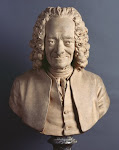



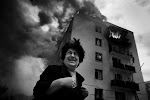

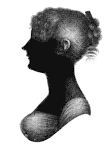

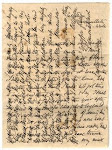
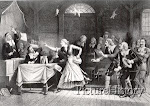

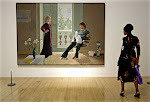

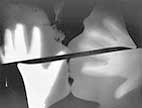









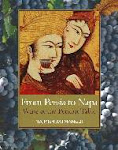






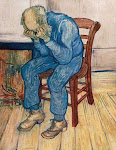



















the answer to yr question on what anais nin and s de beauvoir would have made of each other is in the last diary (1966 - 1974)
ReplyDelete"simone de beauvoir and I dislike each other equally, except that her comments on the diary were petty and personal, whereas mine on work were about the dreariness of her writing, her antipoetic, anti-transcendent flatness" (!)
- typical 'nin' passive-aggressive commentary - what i can't stand is her reading herself as so full of love sweetness and light.